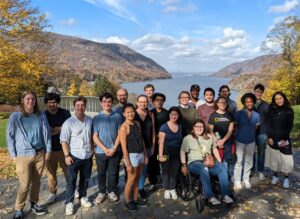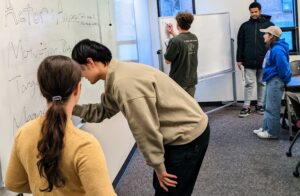
Politics of Modern Warfare [PL 346]
An examination of organized violence from around the world. From World War II to the War on Terror, most people alive today have experienced armed conflict in one way or another. Students will examine why and how we fight as well as investigate the timeless and the distinctive features of modern warfare. Students will consider how, over the past century, we have transformed warfare, and how warfare has transformed us.
States, Rebels, and Warlords [PL 226]
This course examines violent conflict in modern societies. Students will explore the role of the state as well as non-state actors in causing, escalating, and mitigating violence. Students will also address major questions underlying national and international security, such as: When does conflict turn violent? Under what conditions do victims become perpetrators, and perpetrators become victims? What are the causes of terrorism, and what is the state’s role in terrorist activity? Is violence the only way to bring about major political change, or can nonviolent methods work? Are private military contractors changing the way we fight? Students will evaluate theoretical approaches to and empirical assessments of the role of violence in global politics.
Politics of Modern South Asia [PL 348]

An examination of the politics and society of South Asian states, with a special focus on India, Pakistan, Afghanistan, and Bangladesh. Students will develop substantial regional knowledge and learn to apply social scientific reasoning to tackle the major puzzles and policy issues facing South Asia. Students will gain knowledge of the region and investigate the big and enduring questions of political inquiry: What is the relationship between development and democracy? What is the role of history in shaping political outcomes? Is nonviolent resistance more effective than violence? In addressing these questions, students will engage closely with classic and contemporary social scientific texts on South Asia.
Soldiers, Diplomats, and Spies: The Art of Politics by Other Means [SSP 100]
This course explores the politics behind violence and the violence behind politics. It examines the building blocks of statecraft – the behind-the-scenes institutions and bureaucrats who collectively wield more power than we often like to recognize in a democratic society. These are the offices and officers who work the international political machinery: the soldiers, the diplomats, and the spies. Their work, which is often not meant to be observed, reshapes the world we live in every day. In this course, we will unearth some these institutions and functionaries, and shed light on what they do and why, in order to gain a better understanding of how the international political arena actually works.
Introduction to Comparative and International Politics [PL 103]
This course offers a survey of the key concepts and principles of Comparative Politics and International Relations. Issues covered include the functioning of democratic and non-democratic regimes; the relationship between democracy and development; the role of identity in politics; the changing nature of the international system; the causes of war and the search for peace; and the problems of national and transnational security, such as terrorism, the proliferation of weapons of mass destruction, and privatization of security.
